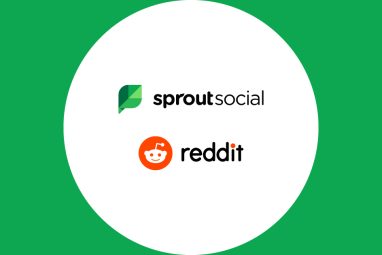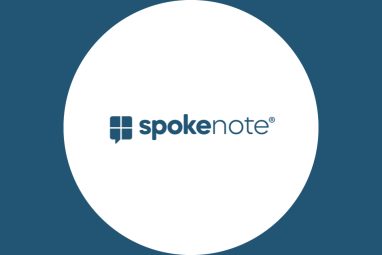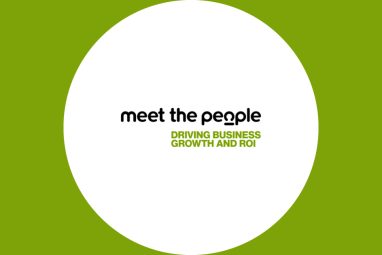UL Offers IoT Security Rating to Improve Transparency of Security for Consumers
UL’s IoT Security Rating aims to enable manufacturers and developers to demonstrate the security due diligence of their products by leveraging proven best practices to provide a security rating of IoT products UL, a leading global safety science leader, offers an assessment of products against UL’s IoT Security Rating to manufacturers and developers based in […]
Topics
What to Read Next

UL’s IoT Security Rating aims to enable manufacturers and developers to demonstrate the security due diligence of their products by leveraging proven best practices to provide a security rating of IoT products
UL, a leading global safety science leader, offers an assessment of products against UL’s IoT Security Rating to manufacturers and developers based in the Middle East and those who export into the region.
The IoT Security Rating provides a security verification and labelling solution for consumer Internet of Things (IoT) products and aims to improve the transparency of security for consumers, assisting them in making conscious and informed purchasing decisions.
According to Statista, the total number of connected consumer electronic IoT devices worldwide reached 7.6 billion by the end of 2019.
Forecasts suggest this will increase to 24.1 billion by 2030, creating a web of interconnected devices spanning everything from smartphones and laptops to kitchen appliances and air conditioning systems.
International Data Corporation estimated in 2019 that connected devices will generate 79.4 zettabytes of data by 2025.
Growing connectivity has led to growing concerns over consumer privacy, with 65% of consumers concerned about how devices are collecting data and 75% distrusting how data is shared, according to global market research company Ipsos MORI.
Also read: Dynamic Yield Announces First of Its Kind “No Consent, No Cookies” Solution
The IoT Security Rating categorises products according to an ascending five-level scale: Bronze, Silver, Gold, Platinum and Diamond. UL’s evaluation process assesses critical security aspects of smart products against common attack methodologies and known IoT vulnerabilities, such as attackers sealing personal data or taking control of devices for various purposes, including DDoS attacks.
Upon completion of the assessment, Verified products receive a differentiated UL Verified Mark security label specifying the achieved security level and re-evaluation by UL. This UL Verified Mark can be used on products, packaging, marketing and in retail environments, serving as a competitive differentiator for manufacturer’s products.
Arif Hassan, strategic accounts manager at UL, explained how UL’s IoT Security Rating System helps manufacturers, developers and consumers: “We support manufacturers by helping them demonstrate their products meet the threshold of reasonable security features required by countries throughout the Middle East and recommended in global IoT guidelines.”
“The UL Verified Mark security label also empowers consumers, providing them with the information they need regarding security so they can make well-informed buying decisions when purchasing connected products.”
As part of UL’s IoT Security Rating, UL technical experts assess products according to the products’ implementation of vital baseline security capabilities, which are aligned with global industry frameworks and best practices.
In 2020, GE Appliances became the world’s first household appliance brand to test its connected products against UL’s IoT Security Rating assessment and achieve the Gold level IoT Security Rating.
As part of its ongoing engagement with the brand, UL tests and assesses all connected products on the GE Appliances IoT security platform to help demonstrate baseline security capabilities and protection of consumers’ data stored on the appliance, on the GE Appliances mobile app and in the cloud.
These products include dishwashers, washing machines, tumble dryers, refrigerators, ovens, water heaters and water softeners. In China, Midea became the first company to be recognised for achieving the IoT Security Rating.
Four of Midea’s air conditioning and dehumidifier product lines earned the Silver rating, demonstrating their use of industry best practice for IoT cybersecurity.
Hassan said: “When consumers buy a connected product in a store or online, the assumption is that the product is secure. However, in reality, that is often not the case.”
“The UL Verified Mark applied to products after completion of the IoT Security Rating helps consumers determine whether the smart product they want to buy meets the developer’s claims and the customer’s expectations.”
“They can be confident the products have been evaluated and assessed against common attack methodologies and known IoT vulnerabilities, empowering them to make their homes more secure.”
The IoT Security Rating further expands UL’s IoT security solutions, including the UL Cybersecurity Assurance Program, IEC 62443 certification and security training and advisory services, that address security needs across IoT industries and ecosystems.
About UL
UL helps create a better world by applying science to solve safety, security and sustainability challenges. We empower trust by enabling the safe adoption of innovative new products and technologies. Everyone at UL shares a passion to make the world a safer place. All of our work, from independent research and standards development, to testing and certification, to providing analytical and digital solutions, helps improve global well-being. Businesses, industries, governments, regulatory authorities and the public put their trust in us so they can make smarter decisions. To learn more, visit UL.com. To learn more about our nonprofit activities, visit UL.org.









































































































